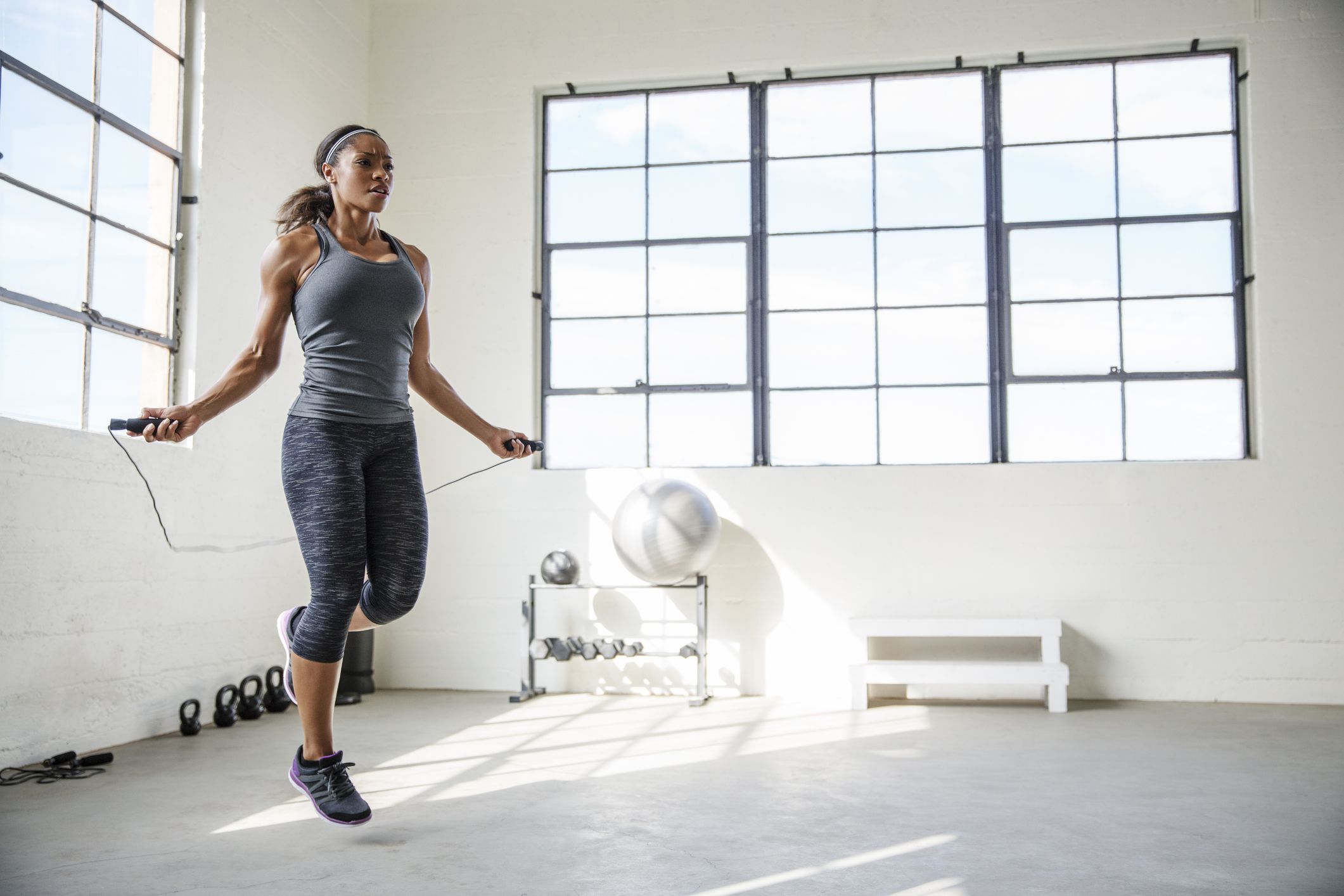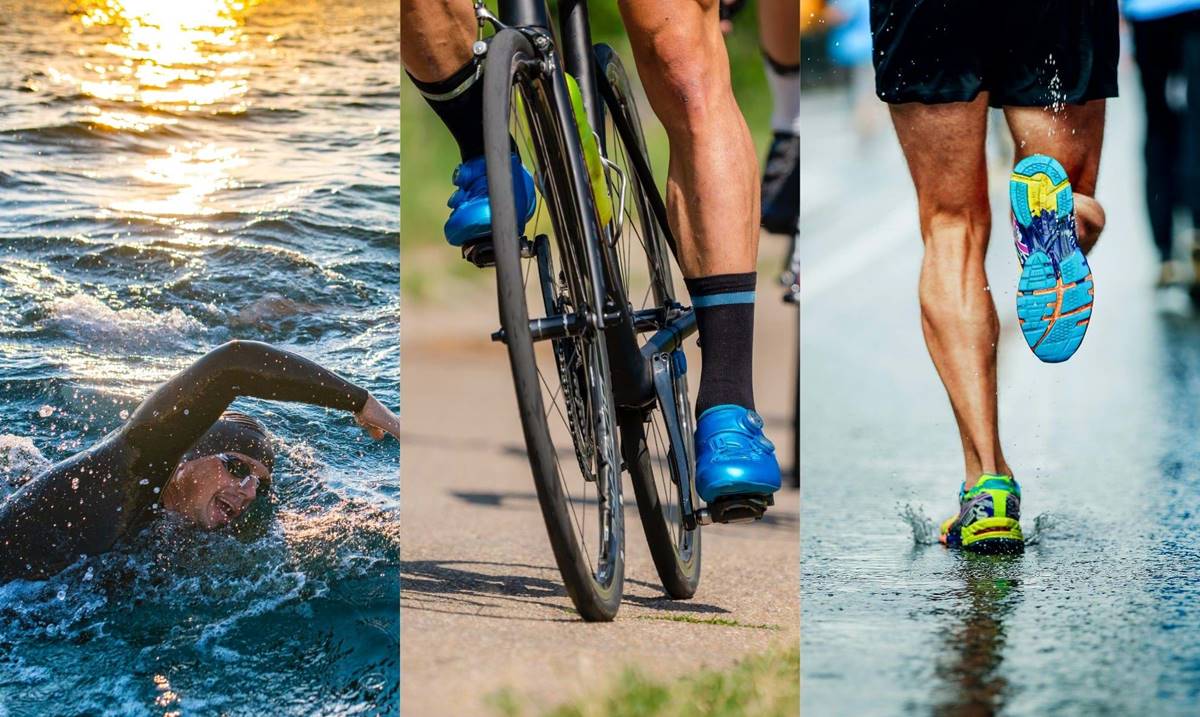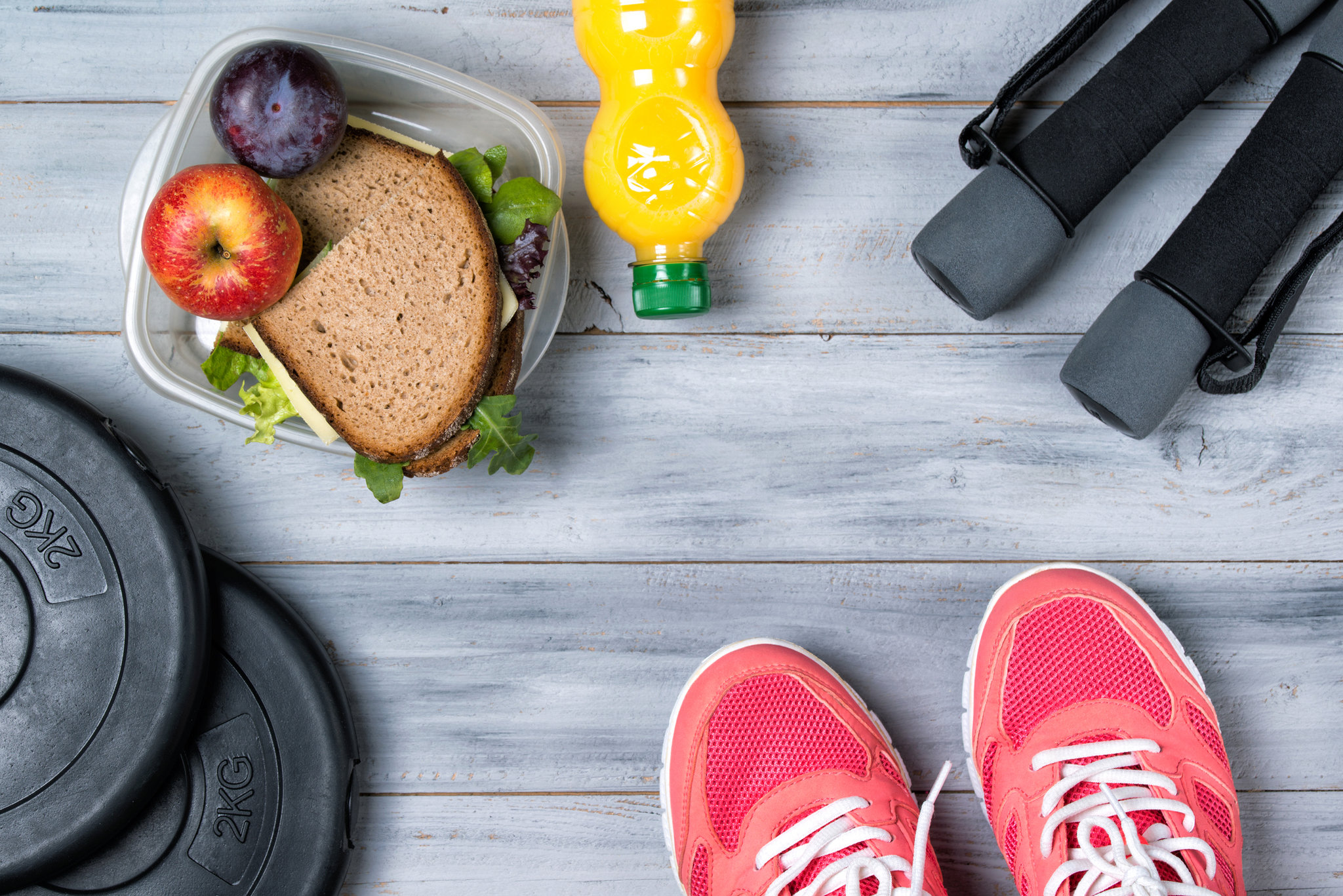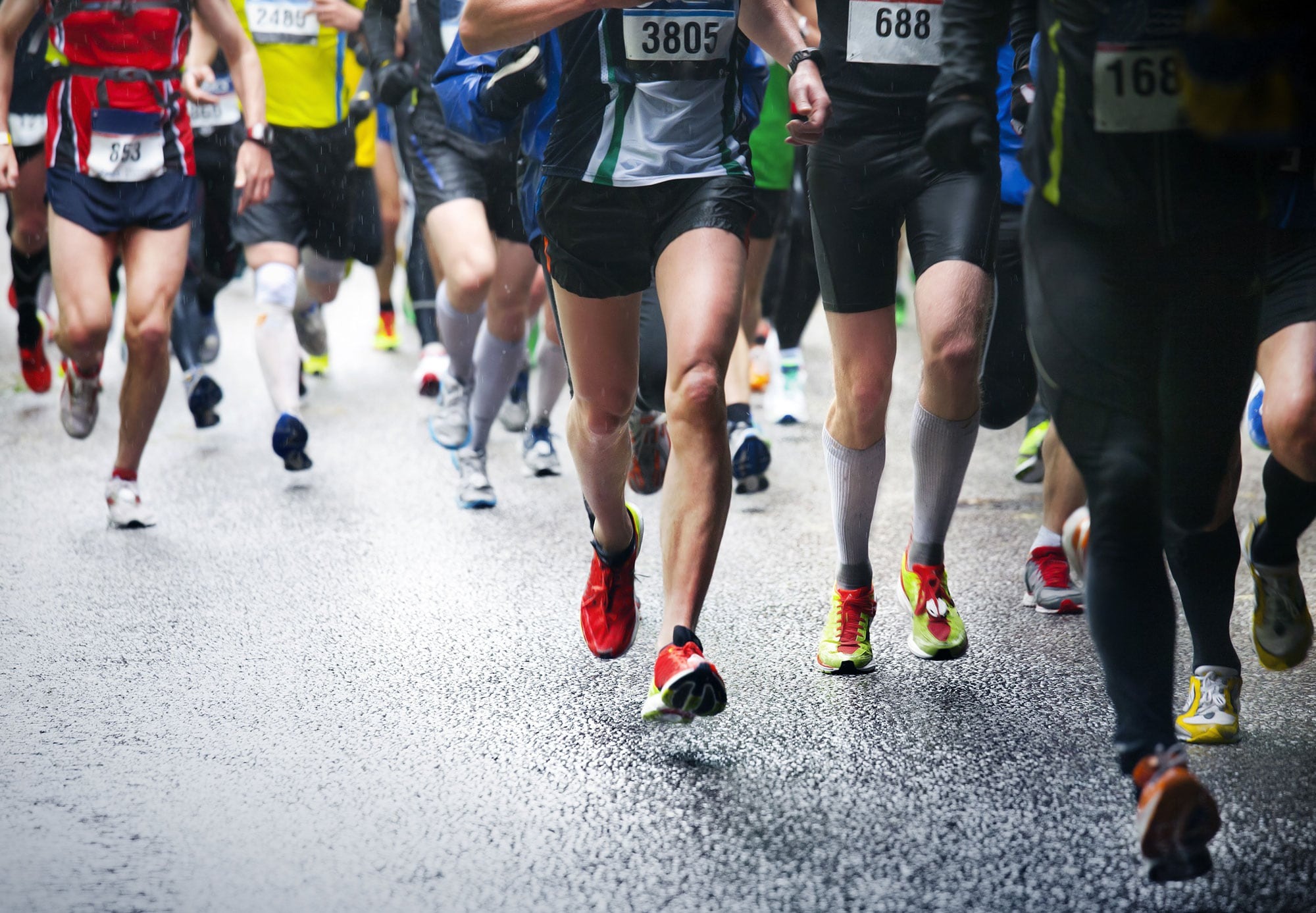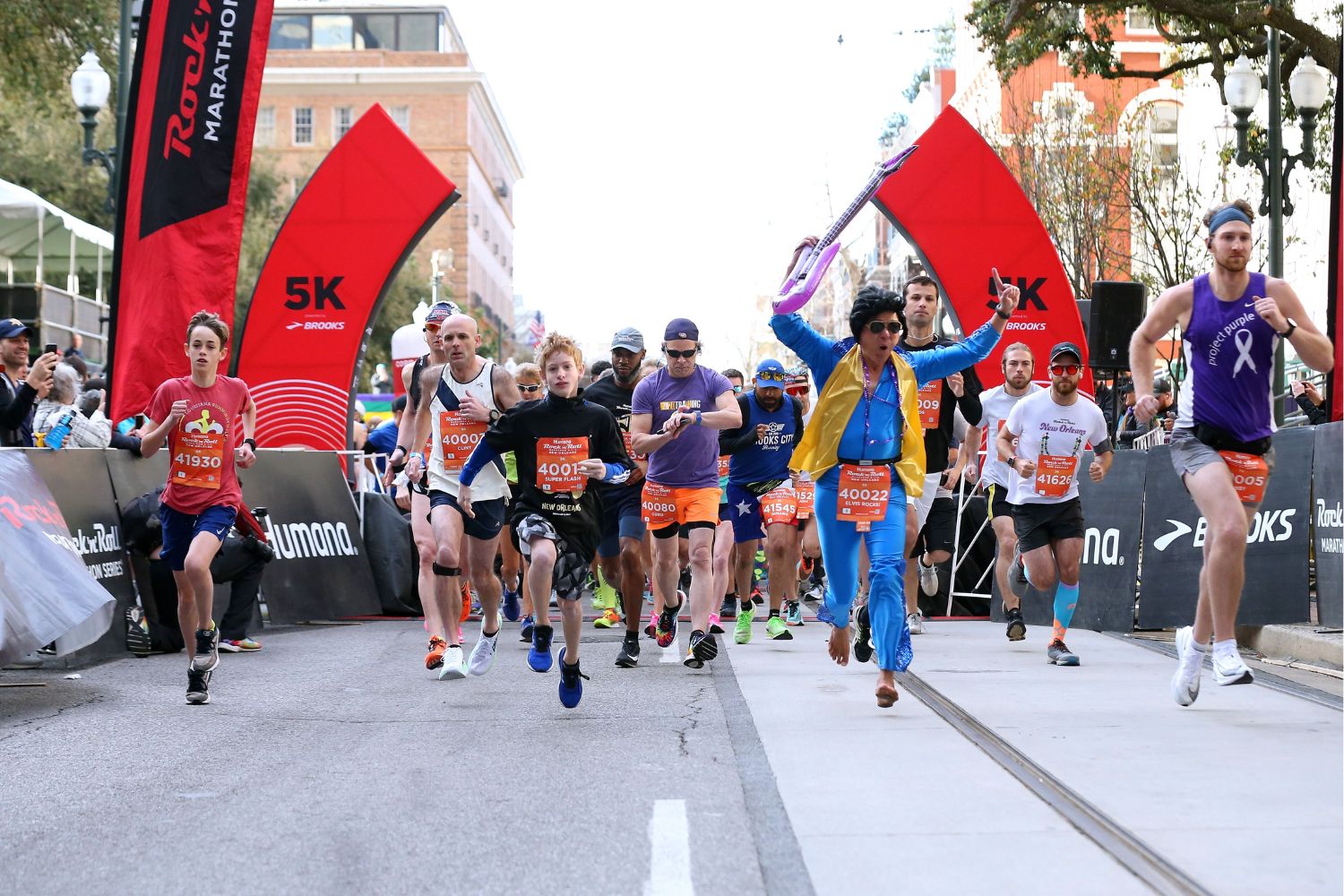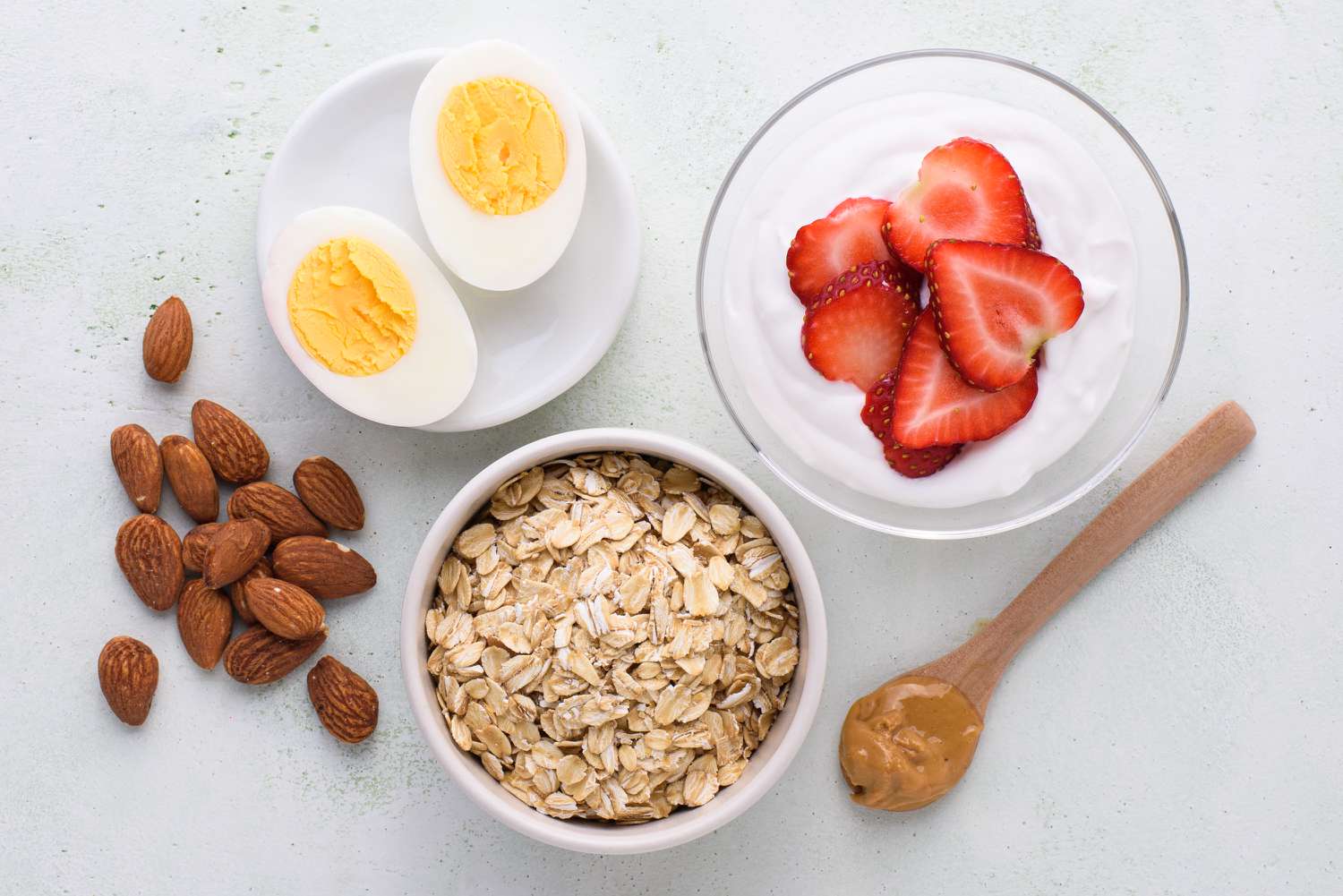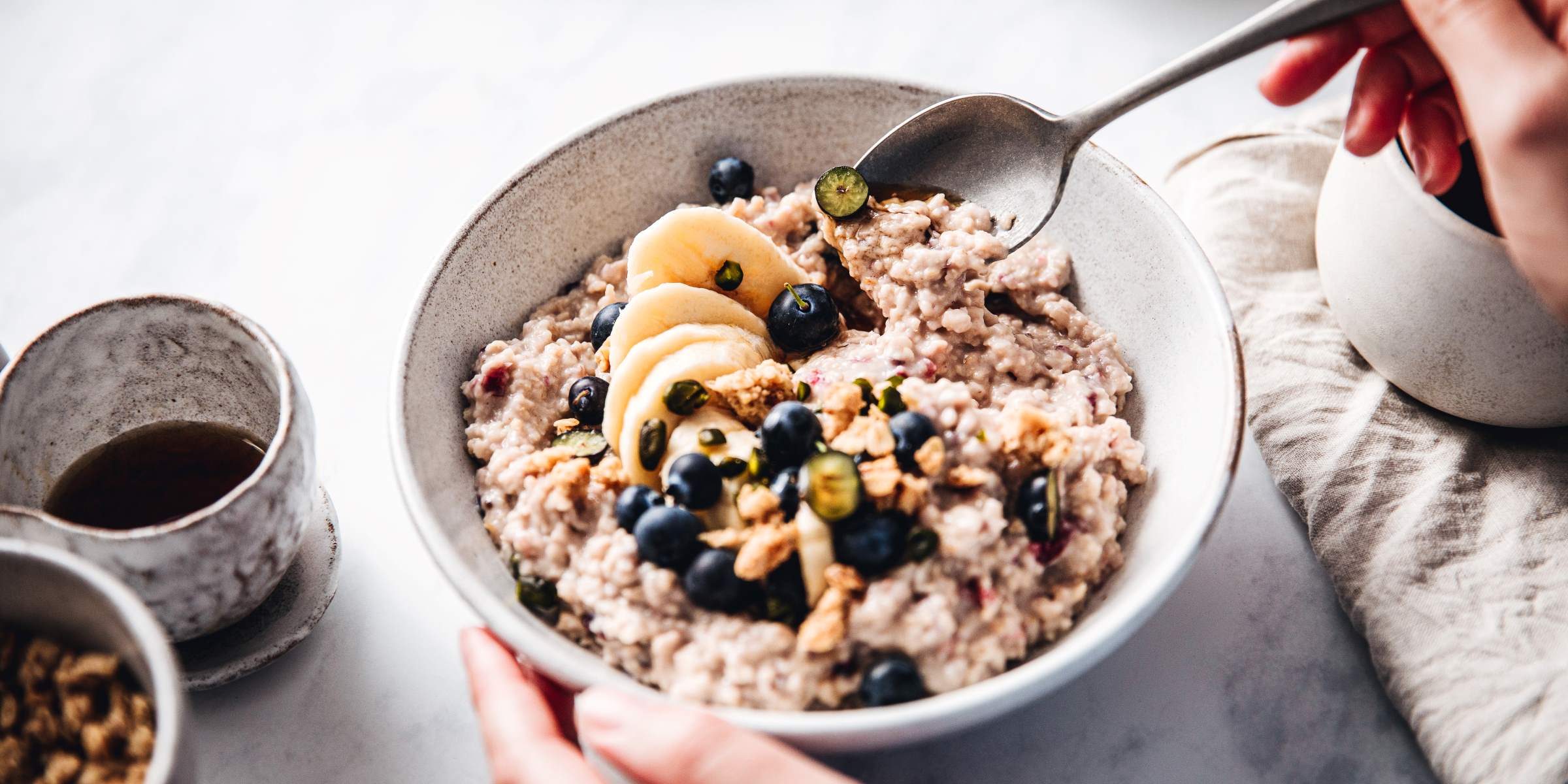

Featured
What Should I Eat Before Morning Workout
Modified: January 2, 2024
Fuel your morning workout with our featured meal ideas. Discover the best pre-workout foods to eat for optimal energy and performance.
Introduction
Welcome to an exciting journey that combines fitness and nutrition! If you’re wondering what to eat before a morning workout, you’ve come to the right place. Whether you’re a seasoned athlete or someone who’s just starting their fitness journey, fueling your body with the right nutrients before exercise is crucial for optimal performance and overall health.
Your pre-workout meal plays a significant role in providing the energy needed to power through your workout, enhancing endurance, improving focus, and promoting muscle repair and recovery. It’s like filling up your car with the right kind of fuel before embarking on a long road trip – you want to ensure you have the energy to go the distance.
While it’s tempting to jump right into a workout without giving much thought to your pre-workout nutrition, taking a few minutes to plan and prepare a well-balanced meal can make a world of difference in your performance and how you feel during and after your workout.
In this article, we’ll explore the importance of pre-workout nutrition, provide general guidelines for pre-workout meals, discuss the role of carbohydrates, protein, and fats, emphasize the importance of hydration, and offer some timing suggestions and sample meal ideas.
Before we dive into the details, it’s important to note that everyone’s nutritional needs are different, and what works for one person may not work for another. It’s always recommended to listen to your body and make adjustments based on your individual preferences, dietary restrictions, and fitness goals.
Importance of Pre-workout Nutrition
Pre-workout nutrition plays a vital role in optimizing your performance during exercise and supporting your overall fitness goals. By providing your body with the right blend of nutrients, you can maximize your energy levels, improve endurance, and enhance muscle recovery.
First and foremost, pre-workout nutrition helps fuel your body for the physical demands of your workout. Carbohydrates, in particular, serve as the main source of fuel for your muscles. Consuming carbs before a workout helps replenish glycogen stores, which are stored carbohydrates in the muscles, providing a readily available energy source.
Not only does pre-workout nutrition optimize energy levels, but it also helps improve exercise performance. Consuming a well-balanced meal before your workout can increase your stamina and endurance, allowing you to push harder and exercise for longer durations. This can be especially beneficial for individuals engaging in high-intensity workouts or endurance activities.
Additionally, pre-workout nutrition supports muscle repair and recovery. Including protein in your pre-workout meal provides the necessary amino acids to help repair damaged muscle tissue and promote muscle growth. This is crucial for those looking to build lean muscle mass or recover properly between training sessions.
Proper pre-workout nutrition also enhances mental focus and concentration during exercise. By adequately fueling your brain with nutrients, you can improve cognitive function, reaction time, and overall mental clarity. This can be particularly beneficial for athletes or individuals engaging in complex movements or sports that require mental agility.
Another often overlooked aspect of pre-workout nutrition is hydration. Ensuring you are adequately hydrated before your workout is essential for maintaining optimal performance and preventing dehydration. Dehydration can lead to decreased energy levels, muscle cramps, and impaired cognitive function, so it’s crucial to prioritize hydration alongside your pre-workout meal.
Overall, pre-workout nutrition sets the foundation for a successful workout. By providing your body with the necessary nutrients, you support optimal energy levels, improve endurance, enhance muscle recovery, and promote mental focus – all of which contribute to achieving your fitness goals.
General Guidelines for Pre-workout Meals
When it comes to pre-workout nutrition, there are a few general guidelines that can help you make informed choices and optimize your performance. These guidelines focus on the right balance of macronutrients, portion sizes, and timing of your pre-workout meal.
First, aim for a well-balanced meal that includes carbohydrates, protein, and healthy fats. Carbohydrates provide your primary source of energy, while protein aids in muscle repair and recovery. Including a small amount of healthy fats can provide sustained energy throughout your workout. The exact ratio of macronutrients may vary based on individual preferences and goals, but a good starting point is to aim for a meal that consists of about 40-50% carbohydrates, 25-30% protein, and 20-30% fats.
Next, consider the portion size of your pre-workout meal. You want to provide your body with enough fuel to power through your workout, but not so much that it leaves you feeling sluggish or uncomfortable. A general rule of thumb is to consume a moderate-sized meal about 1-3 hours before your workout. However, this can vary depending on individual digestion rates and personal preference. If you have a sensitive stomach or prefer a larger meal, aim for closer to 3 hours before your workout. If you’re short on time, opt for a smaller snack about 30 minutes to an hour before your workout.
Timing is another crucial factor to consider. You want to allow enough time for digestion, so your body can properly absorb and utilize the nutrients from your pre-workout meal. Consuming a meal too close to your workout may lead to discomfort and hinder performance. On the other hand, exercising on an empty stomach can leave you lacking energy and may result in decreased performance. Experiment with different timing strategies and listen to your body to determine what works best for you.
In addition to the macronutrients and timing, it’s important to focus on the quality of your pre-workout meal. Choose whole, nutrient-dense foods that are packed with vitamins, minerals, and antioxidants. Opt for complex carbohydrates such as whole grains, fruits, and vegetables, lean sources of protein such as chicken, fish, or plant-based alternatives, and healthy fats from sources like avocados, nuts, and seeds.
Lastly, don’t forget to hydrate! Drinking enough water before your workout is crucial for optimal performance and overall health. Aim to consume at least 16-20 ounces of water 2-3 hours before your workout, and an additional 8-10 ounces about 15 minutes beforehand. Adjust these recommendations based on your sweat rate and the intensity of your exercise.
By following these general guidelines for pre-workout meals, you can ensure that you’re properly fueling your body, optimizing performance, and priming yourself for a successful workout.
Carbohydrates: The Fuel for Energy
When it comes to pre-workout nutrition, carbohydrates are the key nutrient for providing the fuel your body needs to power through your workout. They are the main energy source for your muscles and play a critical role in optimizing exercise performance.
Carbohydrates are broken down by the body into glucose, which is then stored in the muscles and liver as glycogen. During exercise, your muscles rely on these glycogen stores for energy. Therefore, consuming carbohydrates before your workout helps replenish these stores, ensuring that you have enough fuel to sustain intense physical activity.
Not all carbohydrates are created equal, however. It’s essential to choose complex carbohydrates that provide a steady release of energy over a longer period of time. Examples of complex carbohydrates include whole grains, such as oats and brown rice, fruits, vegetables, and legumes.
Simple carbohydrates, on the other hand, are digested and absorbed more quickly, causing a rapid increase in blood sugar levels followed by a crash. These include refined sugars and processed foods like candy, soda, and sugary snacks. While they may provide a quick jolt of energy, they are not the best choice for sustained energy during a workout.
Aim to include a moderate amount of carbohydrates in your pre-workout meal to provide an adequate energy boost. The amount you need may vary depending on factors such as the intensity and duration of your workout, your body weight, and your individual metabolism. Generally, consuming about 30-60 grams of carbohydrates before exercise can be beneficial for most people.
Some examples of pre-workout carbohydrates include a bowl of oatmeal topped with berries, a banana with a tablespoon of nut butter, whole grain toast with avocado, or a homemade energy bar made with dried fruits and nuts.
Experiment with different types and amounts of carbohydrates to find what works best for your body. Remember that everyone’s nutritional needs are unique, so listen to your body and make adjustments accordingly.
By including carbohydrates in your pre-workout meal, you can ensure that your body has the necessary fuel to power through your workout, improve endurance, and optimize performance.
Protein: Repair and Recovery
When it comes to pre-workout nutrition, protein is another essential nutrient that plays a crucial role in supporting muscle repair and recovery. Including an adequate amount of protein in your pre-workout meal can help optimize your exercise performance and support your fitness goals.
Protein is made up of amino acids, which are the building blocks of muscle tissue. During exercise, your muscles undergo stress and microtears, and consuming protein before your workout provides the necessary amino acids to aid in the repair and rebuilding of these muscles.
Consuming protein before exercise can also help improve muscle protein synthesis, which is the process by which your body creates new muscle proteins. This is particularly important for individuals looking to build lean muscle mass or enhance muscle recovery between training sessions.
The amount of protein needed in your pre-workout meal can vary depending on factors such as your body weight, intensity of your workout, and individual goals. A general guideline is to aim for about 15-25 grams of protein in your pre-workout meal.
There are various sources of protein to choose from, including animal-based options like chicken, turkey, fish, eggs, or Greek yogurt. If you follow a plant-based diet, you can find protein in sources such as tofu, tempeh, lentils, beans, and quinoa.
Combining protein with carbohydrates in your pre-workout meal can provide the ideal balance for optimizing energy levels and muscle repair. Consider options like a chicken and vegetable stir-fry with brown rice, a protein smoothie made with fruits and protein powder, or a Greek yogurt parfait with granola and berries.
Timing is also important when it comes to protein consumption. Consuming protein prior to exercise allows your body to start the muscle repair process immediately and ensures that the necessary amino acids are available for your muscles during your workout.
However, keep in mind that pre-workout protein alone isn’t sufficient for overall muscle growth and recovery. It’s vital to spread your protein intake throughout the day and combine it with post-workout nutrition as well.
By including an adequate amount of protein in your pre-workout meal, you can support muscle repair and recovery, enhance muscle protein synthesis, and improve overall exercise performance.
Fats: The Right Kind for Sustained Energy
Fat is often vilified in the world of nutrition, but it plays an important role in pre-workout meals by providing sustained energy and supporting overall health. However, it’s essential to choose the right types of fats for optimal performance.
Healthy, unsaturated fats such as those found in avocados, nuts, seeds, and olive oil can provide a valuable source of energy during exercise. These fats are digested more slowly than carbohydrates and can help provide a steady release of energy throughout your workout.
Including a small amount of healthy fats in your pre-workout meal can also help you feel satiated and prevent hunger pangs during your workout. This can be particularly important for individuals engaging in longer-duration exercise or endurance activities.
Avoid consuming foods high in saturated and trans fats, such as fried foods or processed snacks, before your workout. These fats are harder to digest and can leave you feeling sluggish and weighed down.
Opt for pre-workout meals and snacks that include a moderate amount of healthy fats. For example, you could add a tablespoon of nut butter to your banana or smear avocado on whole grain toast.
While fats can provide sustained energy during your workout, keep in mind that they are more calorie-dense than carbohydrates and protein. Be mindful of portion sizes to avoid consuming excessive calories that may hinder your fitness goals.
It’s worth noting that if your primary goal is weight loss, you may want to limit your fat intake before a workout, as fats have a higher calorie content. In this case, focus on consuming a balanced meal with an emphasis on carbohydrates and protein.
Overall, incorporating the right kind of fats in your pre-workout meal can provide sustained energy, enhance satiety, and contribute to optimal exercise performance. Choose sources of healthy fats and combine them with carbohydrates and protein to create a well-rounded and balanced pre-workout meal.
Hydration: Preparing the Body for Exercise
One crucial aspect of pre-workout nutrition that is often overlooked is hydration. Proper hydration is essential for optimal performance, as it helps maintain fluid balance, regulates body temperature, and supports overall bodily functions.
When you’re properly hydrated, your body can function at its best during exercise. Dehydration, on the other hand, can lead to decreased energy levels, muscle cramps, dizziness, and impaired cognitive function.
It’s important to start hydrating well before your workout to ensure that your body is adequately prepared. Aim to drink at least 16-20 ounces of water 2-3 hours before your workout. This allows enough time for your body to absorb and distribute the fluids, helping to prevent dehydration during exercise.
In addition to water, consider including electrolytes in your pre-workout hydration routine. Electrolytes, such as sodium, potassium, and magnesium, help maintain the balance of fluids in your body. They are essential for proper muscle function and can be lost through sweat during exercise.
You can replenish electrolytes with sports drinks, coconut water, or through natural sources like fruits and vegetables. Adding a pinch of salt to your pre-workout meal or snack can also help replenish sodium levels.
Keep in mind that the amount of water you need to drink before exercise may vary depending on factors such as the intensity of your workout, weather conditions, and your individual sweat rate.
Pay attention to how your body feels and adjust your hydration accordingly. If you’re exercising in a hot and humid environment or for an extended duration, you may need to increase your fluid intake.
Remember to continue hydrating throughout your workout as well. Sip on water or a sports drink during exercise to replace fluids lost through sweat. Aim to consume 7-10 ounces of fluids every 10-20 minutes during your workout.
To gauge your hydration status, pay attention to the color of your urine. Ideally, your urine should be a pale yellow color, indicating that you’re well-hydrated. Darker urine may be a sign of dehydration and signifies the need for increased fluid intake.
By prioritizing hydration in your pre-workout routine, you can ensure that your body is properly prepared for exercise, maintain optimal performance, and prevent the negative effects of dehydration.
Timing: When to Eat Before a Morning Workout
Knowing when to eat before a morning workout can have a significant impact on your performance and how you feel during your exercise session. The goal is to provide your body with enough time to digest the meal and absorb the nutrients, while also avoiding discomfort or sluggishness.
A general guideline is to consume a pre-workout meal or snack about 1-3 hours before your workout. This timeframe allows your body to digest and utilize the nutrients effectively. However, it’s important to listen to your body and adjust the timing based on your individual preferences and digestion rate.
If you have a sensitive stomach or prefer a larger meal, aim for closer to the 3-hour mark. This gives your body ample time to digest the meal and prevents the risk of feeling gastrointestinal discomfort during exercise.
If you’re short on time or prefer a smaller snack, you can opt for eating about 30 minutes to an hour before your workout. In this case, choose easily digestible foods that provide quick energy, such as a piece of fruit, a smoothie, or a small handful of nuts or pretzels.
It’s important to note that the timing of your pre-workout meal can vary depending on factors such as the size of the meal, the intensity of your workout, and your individual digestion rate. Experiment with different pre-workout meal timing strategies to find what works best for you.
For early morning workouts, the timing may need to be adjusted slightly. If you prefer to exercise upon waking up, try to have a smaller snack, such as a banana or a granola bar, about 30 minutes before your workout.
Keep in mind that everyone’s body is different, and what works for one person may not work for another. Pay attention to how your body feels during your workouts and make adjustments accordingly. If you notice discomfort or a lack of energy, consider adjusting the timing or composition of your pre-workout meal.
Remember to stay properly hydrated before and during your workout, as hydration is essential for optimal performance.
By finding the right timing for your pre-workout meal and snack, you can ensure that your body has the necessary fuel and nutrients to power through your morning workout, enhancing your performance and overall exercise experience.
Sample Pre-workout Meal Ideas
Coming up with pre-workout meal ideas that are both delicious and provide the right balance of nutrients can sometimes be challenging. Here are some sample meal ideas to inspire you and fuel your workouts:
- Greek Yogurt Parfait: Layer Greek yogurt with fresh berries and a sprinkle of granola or nuts. This combination provides protein, carbohydrates, and healthy fats to support energy levels and muscle recovery.
- Veggie Omelette: Whip up an omelette with egg whites or whole eggs and load it with your favorite vegetables like spinach, peppers, onions, and mushrooms. Pair it with whole grain toast for additional energy from carbohydrates.
- Chicken and Quinoa Salad: Grill or bake chicken breast and serve it over a bed of mixed greens, cherry tomatoes, cucumbers, and cooked quinoa. Drizzle with a light dressing for added flavor.
- Peanut Butter Banana Smoothie: Blend together a ripe banana, a scoop of peanut butter, a cup of almond milk, and a handful of ice. This smoothie is a great source of carbohydrates, protein, and healthy fats.
- Whole Grain Toast with Avocado and Smoked Salmon: Toast a slice of whole grain bread and top it with mashed avocado, smoked salmon, and a squeeze of lemon. This combination provides a good balance of carbohydrates, healthy fats, and protein.
Remember, these are just a few ideas to get you started. Feel free to customize these meals based on your preferences, dietary needs, and fitness goals. Experiment with different combinations of protein, carbohydrates, and healthy fats to find what works best for you.
As mentioned earlier, ensure that you’re properly hydrated before your workout by drinking water or hydrating beverages, such as coconut water or sports drinks.
By fueling your body with a well-balanced pre-workout meal, you can optimize your energy levels, enhance performance, and support muscle repair and recovery.
Conclusion
Proper pre-workout nutrition is an essential component of an effective fitness routine. The right combination of carbohydrates, protein, fats, and hydration can fuel your body, optimize performance, and support muscle repair and recovery.
By following the general guidelines for pre-workout meals, including timing your meals appropriately, and choosing nutrient-dense options, you can enhance your energy levels, improve endurance, and maximize the benefits of your workout.
Carbohydrates provide the necessary fuel for energy, while protein aids in muscle repair and recovery. Healthy fats offer sustained energy, and proper hydration ensures optimal performance and prevents dehydration.
Remember that everyone’s nutritional needs are different, so it’s important to listen to your body and make adjustments based on your preferences, dietary restrictions, and fitness goals. Experiment with different pre-workout meal ideas and timing strategies to find what works best for you.
Incorporating pre-workout nutrition into your fitness routine not only improves your performance but also supports your overall health and well-being. Prioritize pre-workout nutrition alongside your exercise regimen to optimize your results and achieve your fitness goals.
So, the next time you lace up your sneakers and head to the gym or tackle a challenging workout, fuel your body with the right nutrients and take your performance to the next level!
